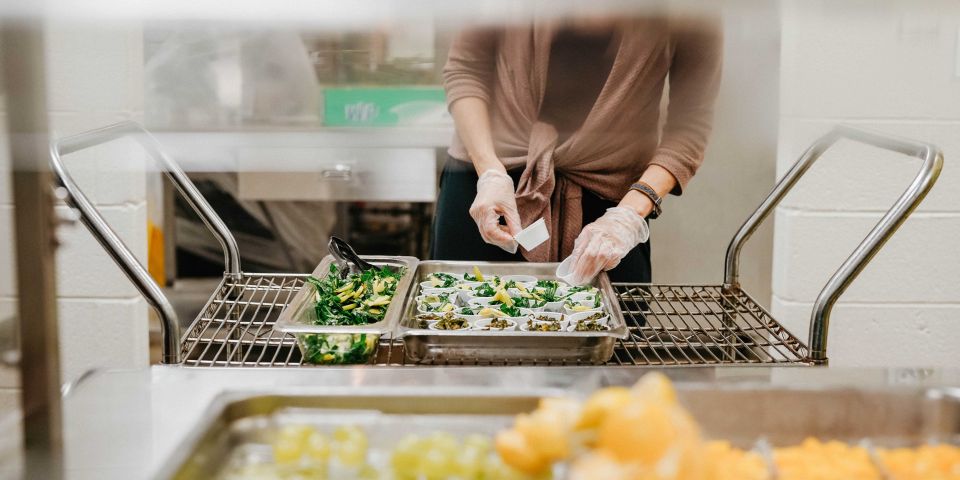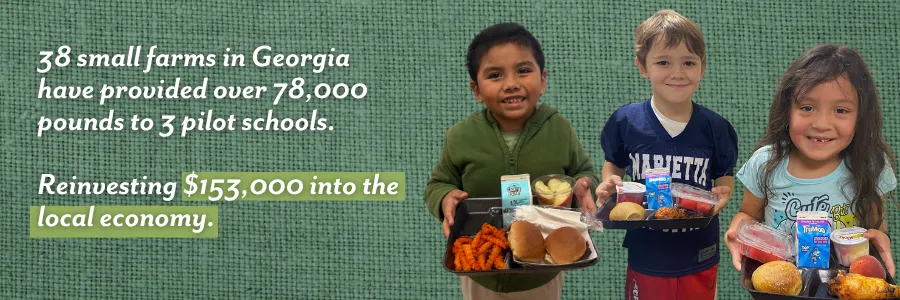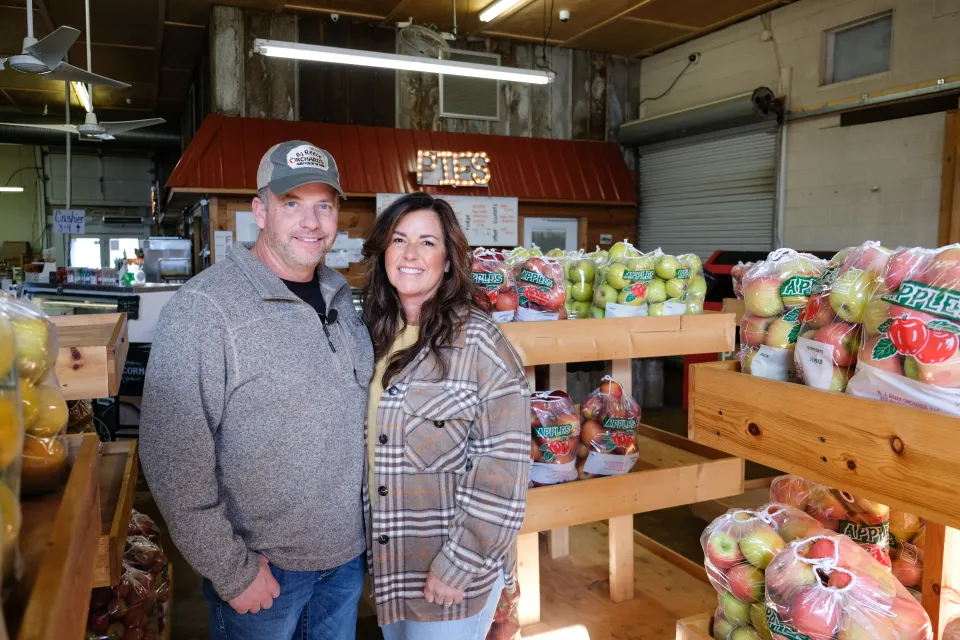Let's Connect
Our friendly and educated team is here to partner with you every step of the way. Connect today to learn of all the ways to partner with The Common Market.
Delivering local food for the common good.

Institutional food systems often operate on a scale that does not leave room for small and mid-sized family farms to participate. Buying local isn’t always easy for schools, as school nutrition is functioning on increasingly tighter budgets with little room for innovation.
Now, a pilot program is helping to bridge that gap. In 2023, The Georgia ACRE Collective, led by The Common Market Southeast, launched the Local Foods Incentive School Pilot Program. The initiative connects local farmers with school cafeterias, and in doing so, improves student nutrition and the state’s rural economies.
A 2024 case study on the program demonstrates that, with technical assistance and resources, schools are able to buy more products from Georgia farmers. The effect is stronger local food systems across the state.
In its first two years, the program invested nearly $153,000 into the local food economy, sourcing fresh meats and produce from 38 small-scale farms. 78,000 pounds of food from within a 250-mile radius were delivered to cafeterias across three districts: Marietta City Schools, Rockdale County Public Schools, and Atlanta Public Schools. Together, these districts reach more than 74,000 students. This upcoming school year (SY 2025-2026), the program will expand to include Atlanta Public Schools' South Atlanta High School.
“When schools are supported with the right resources, they become powerful engines for community health and economic resilience,” said Emily Hennessee of The Georgia ACRE Collective.
“We’ve seen firsthand how local sourcing not only improves the quality of meals for students, it strengthens relationships between schools and farmers, builds food literacy among young people, and keeps dollars circulating in Georgia’s rural communities. This pilot is proof that when we invest in local food systems, everyone wins.” — Emily Hennessee of The Georgia ACRE Collective

The program goes beyond shifting purchasing decisions. It’s changing the way schools plan and prepare meals. To make local sourcing work, the pilot provides school nutrition teams with training to adapt recipes for seasonal produce and build menus that reflect the tastes and cultures of their student bodies.
Students also play a role. Through taste tests and nutrition education, they help select meals that make it onto the menu. That involvement encourages curiosity and student buy-in to the local food movement.
“These are foods that [students] may not otherwise really have a lot of access to,” said Susan Stone, Senior Director of Nutrition Support Services with Atlanta Public Schools. “Whenever you expand your menu and serve things that not only benefit the community but also benefit the students, that's really exciting."
The program’s impact is already visible. Meals are fresher, more nutritious, and better received. School institutions have built strong relationships with nearby farms. And money is staying in Georgia’s rural communities.
Stone continued: “Fresh produce that is locally grown, in addition to being more environmentally sound, is often of a higher quality when it reaches the students. This benefits everyone.”
“[These school relationships] give us a constant revenue stream so we can help keep our operations going – to pay the people to plant the trees, and purchase the trees and clear the land” — Rachel Reece, co-owner of BJ Reece Orchards

The pilot generated over $55,000 in sales for the Georgia orchard, delivering 45,858 pounds of fresh apples, pears, and cider to participating schools. More than 20 varieties of the seasonal hand fruits reached students.
The Georgia ACRE Collective’s Local Foods Incentive School Pilot Program is laying the foundation for a stronger Georgia, one where students thrive and small farms have access to stable, local markets.
The Georgia ACRE Collective sees this pilot as proof of what’s possible. With continued investment, this model could scale across Georgia, strengthening rural economies that power the entire state. This is about more than food–it’s about Georgia’s future.
-----------------
Learn more about The Common Market’s School Pilot work in our 2024 case study, “Local Foods Incentive Pilot Program.”
This work was made possible with the support of The Rockefeller Foundation. The ACRE Collective is a collaboration between The Common Market Southeast, The Conservation Fund’s Working Farms Fund, Georgia Organics, Health Care Without Harm, and the Turner Environmental Law Clinic at Emory University.
Our friendly and educated team is here to partner with you every step of the way. Connect today to learn of all the ways to partner with The Common Market.
"We love working with Common Market and consider them a valuable partner. It has enabled us to grow more crops and diversify."
— Curt Fifer, Sales Manager, Fifer Orchards